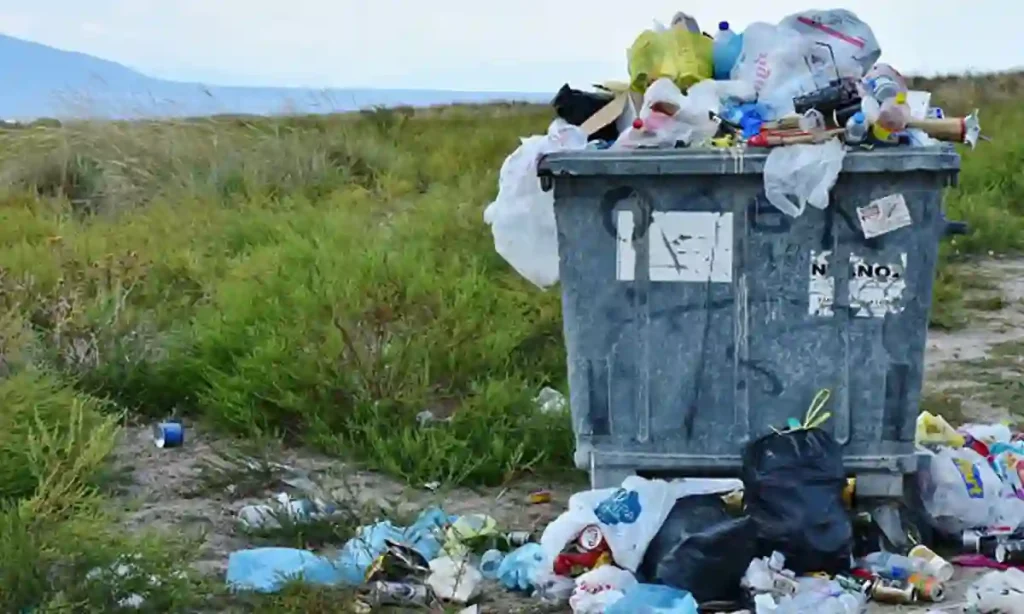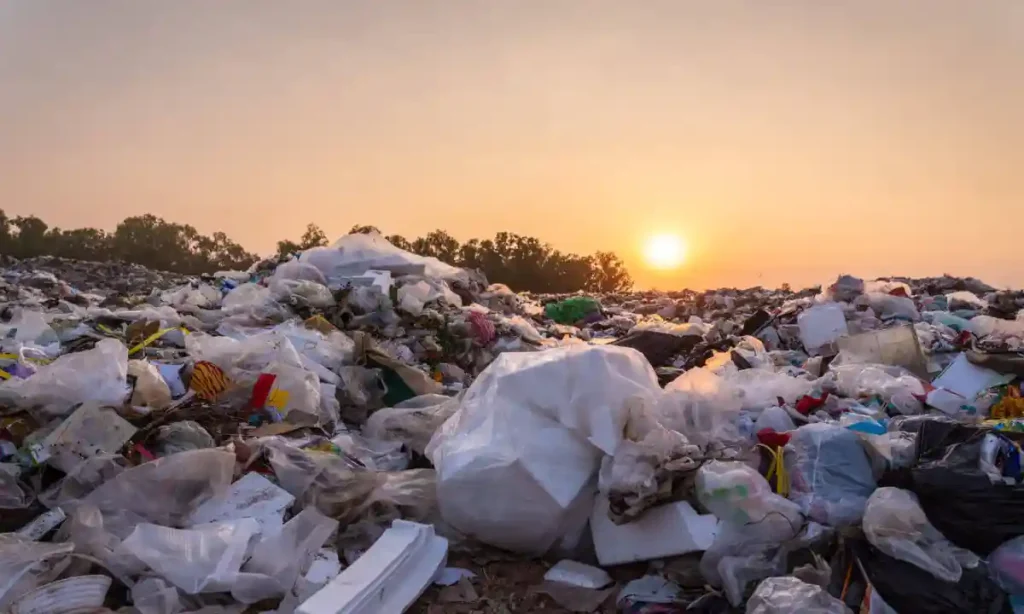Alhambra, a vibrant city in California, faces its share of environmental challenges, including the connection between garbage disposal and climate change. As a community, we must recognize the impact of our waste management practices on the environment and take proactive steps to mitigate them. In this article, The Pro Plumbing aims to shed light on the relationship between garbage disposal and climate change in Alhambra, emphasizing the importance of responsible waste management and exploring potential solutions for a greener future.
The Challenge of Waste Management:
Alhambra, like many cities across the globe, faces a growing waste management challenge. The accumulation and improper disposal of garbage contribute significantly to greenhouse gas emissions, which are a primary driver of climate change. When organic waste decomposes in landfills, it produces methane, a potent greenhouse gas that is over 25 times more powerful than carbon dioxide in terms of heat-trapping potential. Alhambra’s waste management practices must address this issue to curb the city’s carbon footprint. Its better to take after your garbage disposal systems, look out for some tips for extended lifespan to avoid these challenges
Current Waste Management Practices in Alhambra:
At present, Alhambra relies on traditional waste management methods, primarily landfilling and incineration, to handle its waste. These practices are not only unsustainable but also detrimental to the environment. The organic waste that ends up in landfills decomposes without oxygen, leading to the release of methane gas. Similarly, incineration releases carbon dioxide and other pollutants into the atmosphere, exacerbating climate change.

The Need for Sustainable Waste Management:
To combat the adverse effects of garbage disposal on climate change, Alhambra must prioritize sustainable waste management practices. One key approach is the implementation of effective recycling programs. By encouraging residents and businesses to separate recyclables from their waste stream, the city can reduce the amount of waste sent to landfills or incinerators. Additionally, composting organic waste can play a vital role in mitigating greenhouse gas emissions. Establishing composting facilities and promoting composting at the household and community levels can help turn organic waste into valuable resources while minimizing its environmental impact.
The Role of Education and Awareness:
Promoting education and awareness campaigns is crucial to fostering a culture of responsible waste management in Alhambra. Residents and businesses need to understand the environmental consequences of improper garbage disposal and the benefits of sustainable alternatives. Public outreach programs, workshops, and educational materials can provide valuable information on waste reduction, recycling, and composting techniques. Encouraging active community participation through events like cleanup drives and waste reduction challenges can further strengthen the connection between residents and their responsibility towards the environment.
Collaboration with Local Authorities and Stakeholders:
Alhambra’s journey towards sustainable waste management requires collaboration among local authorities, waste management companies, and other stakeholders. Government entities can implement policies and regulations that incentivize recycling and composting, such as providing financial support for infrastructure development and offering tax incentives to businesses that adopt sustainable waste management practices. Collaboration with waste management companies can ensure the efficient collection, sorting, and processing of recyclables and compostable materials.
Waste-to-Energy Conversion:
Alhambra should explore waste-to-energy conversion technologies as an alternative to traditional incineration. Advanced methods, such as anaerobic digestion and gasification, can convert organic waste into biogas or syngas, which can be used for electricity generation or heating. These technologies not only reduce greenhouse gas emissions but also generate renewable energy, contributing to Alhambra’s transition to a low-carbon future.
Extended Producer Responsibility (EPR):
Implementing EPR policies can shift the burden of waste management from consumers to producers. By holding manufacturers accountable for the lifecycle of their products, EPR encourages the adoption of eco-friendly designs, promotes recycling, and reduces waste generation. Alhambra can work with state and local authorities to develop and enforce EPR legislation, ensuring that producers take responsibility for the proper disposal and recycling of their products.
Plastic Reduction and Alternatives:
Plastic waste poses a significant environmental challenge and contributes to climate change through its manufacturing process and slow decomposition. Alhambra should actively promote plastic reduction initiatives, such as plastic bag bans, encouraging the use of reusable alternatives. Local businesses can also play a role by adopting sustainable packaging practices and offering environmentally friendly options to customers.
Green Infrastructure for Waste Management:
Alhambra can invest in green infrastructure for waste management to improve efficiency and reduce environmental impacts. This includes establishing recycling and composting facilities equipped with modern technology to optimize waste sorting, processing, and recovery. Green infrastructure can also involve the integration of renewable energy systems into waste management facilities, such as solar panels or biogas utilization, to further reduce carbon emissions.
Circular Economy Approach:
Adopting a circular economy approach can minimize waste generation and maximize resource efficiency in Alhambra. This involves designing products for longevity, encouraging repair and reuse, and promoting the recycling and repurposing of materials. By embracing the principles of the circular economy, Alhambra can reduce its reliance on raw materials, conserve energy, and decrease the carbon footprint associated with manufacturing processes.

FAQS:
How does garbage disposal contribute to climate change?
Improper garbage disposal, particularly in landfills, leads to the decomposition of organic waste without oxygen, resulting in the release of methane gas. Methane is a potent greenhouse gas that contributes to global warming and climate change.
What are the consequences of greenhouse gas emissions from garbage disposal?
Greenhouse gas emissions, including methane and carbon dioxide, trap heat in the atmosphere and contribute to global warming. This leads to a range of adverse effects, such as rising temperatures, altered weather patterns, sea-level rise, and ecological imbalances.
How does the concept of a circular economy relate to garbage disposal and climate change?
The circular economy approach aims to minimize waste generation and maximize resource efficiency. By adopting circular economy principles, such as product design for durability, repair, and recycling, Alhambra can reduce its reliance on raw materials and decrease the carbon footprint associated with manufacturing processes, ultimately mitigating the impact of garbage disposal on climate change.
Are there any financial benefits to sustainable waste management practices?
Yes, sustainable waste management practices and the Garbage Disposal Tips for Businesses can help and lead you to economic benefits. Recycling and composting programs can create employment opportunities, reduce waste management costs, and conserve resources. Additionally, by minimizing the environmental damage caused by garbage disposal, communities can save on the costs associated with climate change impacts, such as disaster recovery and healthcare expenses.
How does Alhambra compare to other cities in terms of sustainable waste management practices?
The level of sustainable waste management practices may vary among cities. Alhambra has an opportunity to benchmark itself against other cities that have successfully implemented recycling programs, composting initiatives, and waste reduction strategies. Learning from best practices and adapting them to the local context can help Alhambra make progress in its waste management and climate change mitigation efforts.
Conclusion:
The connection between garbage disposal services and climate change in Alhambra is undeniable. It is imperative for the city to adopt sustainable waste management practices to mitigate greenhouse gas emissions and promote environmental sustainability. By implementing recycling programs, encouraging composting, raising awareness, and fostering collaboration among stakeholders, Alhambra can make significant strides towards a greener future. The actions taken today will not only benefit the environment but also contribute to the well-being and resilience of the community for generations to come.

